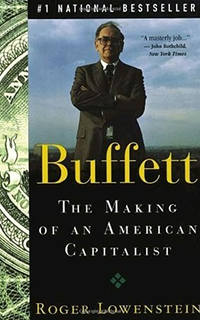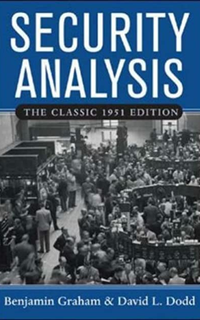Collection
Best Books For Investors: A Short Shelf
"I’m often asked, especially as the holiday gift-giving season approaches, which books I recommend for investors.
I haven’t kept exact count, of course, but over the past quarter-century I have surely read (or tried to read) a couple thousand books on investing. Nearly all of them were a tragic waste of good trees. Most weren’t worth reading even a few pages of.
So I feel strongly that the usual article on “best investing books” has far too many entries and ends up suggesting good books you might read, rather than recommending great books you must read.
Here’s a list that I would still be comfortable with decades from now. Every book below has already stood the test of time and, I’m confident, will remain useful for generations to come. You will quickly note that some aren’t about investing at all. But they all will help teach you how to think more clearly, which is the only way to become a wiser and better investor. I’ve listed them alphabetically by author." - Jason Zweig
- Curated in Best Books For Investors: A Short Shelf
In clear, simple prose, Belsky and Gilovich explain some of the most common quirks that cause people to make foolish financial decisions. If you read this book, you should be able to recognize most of them in yourself and have a fighting chance of counteracting some of them. Otherwise, you will end up learning about your cognitive shortcomings the hard way: at the Wall Street campus of the School of Hard Knocks.
- Curated in Best Books For Investors: A Short Shelf
The late polymath Peter Bernstein poured a long lifetime of erudition and insight into this intellectual history of risk, luck, probability and the problems of trying to forecast what the future holds. Combining a stupendous depth of research with some of the most elegant prose ever written about finance, Bernstein chronicles the halting human march toward a better understanding of risk—and reminds us that, after centuries of progress, we still have a long way to go.
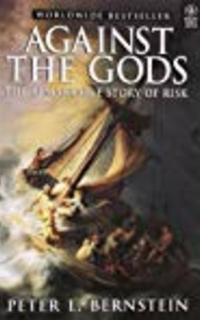
- Curated in Best Books For Investors: A Short Shelf
The founder of the Vanguard Group and father of the index-fund industry methodically sorts fact from fiction. Following his logical arguments can benefit you even if you never invest in a mutual fund, since Bogle touches on just about every crucial aspect of investing, including taxes, trading costs, diversification, performance measurement and the power of patience.
- Curated in Best Books For Investors: A Short Shelf
Neither light reading nor cheap (it’s hard to find online for less than about $75), this book is the most thoughtful and objective analysis of the long-term returns on stocks, bonds, cash and inflation available anywhere, purged of the pom-pom waving and statistical biases that contaminate other books on the subject. The sober conclusion here: Stocks are likely, although not certain, to be the highest-performing asset over the long run. But if you overpay at the top of a bull market, your future returns on stocks will probably be poor.
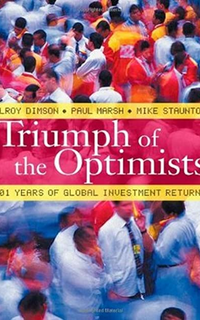
- Curated in Best Books For Investors: A Short Shelf
These captivating oral histories of the great Nobel Prize-winning physicist ostensibly have nothing to do with investing. In my view, however, the three qualities an investor needs above all others are independence, skepticism and emotional self-control. Reading Feynman’s recollections of his career of intellectual discovery, you’ll see how hard he worked at honing his skepticism and learning to think for himself. You’ll also be inspired to try emulating him in your own way.
- Curated in Best Books For Investors: A Short Shelf
Originally published in 1949, called by Warren Buffett “by far the best book on investing ever written,” this handbook covers far more than just how to determine how much a company’s stock is worth. Graham discusses how to allocate your capital across stocks and bonds, how to analyze mutual funds, how to take inflation into account, how to think wisely about risk and, especially, how to understand yourself as an investor. After all, as Graham wrote, “the investor’s chief problem — and even his worst enemy — is likely to be himself.” (Disclosure: I edited the 2003 revised edition and receive a royalty on its sales.) Advanced readers can move on to Benjamin Graham and David Dodd, Security Analysis, the much longer masterpiece upon which The Intelligent Investor is based.
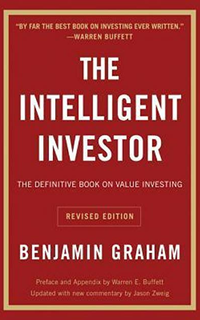
- Curated in Best Books For Investors: A Short Shelf
This puckish riff on how math can be manipulated is only 142 pages; most people could read it on a train ride or two, or in an afternoon at the beach. As light as the book is, however, it is nevertheless profound. In one short take after another, Huff picks apart the ways in which marketers use statistics, charts, graphics and other ways of presenting numbers to baffle and trick the public. The chapter “How to Talk Back to a Statistic” is a brilliant step-by-step guide to figuring out how someone is trying to deceive you with data.
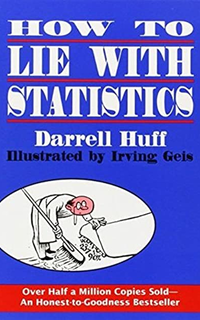
- Curated in Best Books For Investors: A Short Shelf
Successful investing isn’t about outsmarting the next guy, but rather about minimizing your own stupidity. Psychologist Daniel Kahneman, who shared the Nobel Prize in Economics in 2oo2, probably understands how the human mind works better than anyone else alive. This book can make you think more deeply about how you think than you ever thought possible. As Kahneman would be the first to say, that can’t inoculate you completely against your own flaws. But it can’t hurt, and it might well help. (Disclosure: I helped Kahneman research, write and edit the book, although I don’t earn any royalties from it.)
- Curated in Best Books For Investors: A Short Shelf
In this classic, first published in 1978, the late financial economist Charles Kindleberger looks back at the South Sea Bubble, Ponzi schemes, banking crises and other mass disturbances of purportedly efficient markets. He explores the common features of market disruptions as they build and burst. If you remember nothing from the book other than Kindleberger’s quip, “There is nothing so disturbing to one’s well-being and judgment as to see a friend get rich,” you are ahead of the game.
- Curated in Best Books For Investors: A Short Shelf
This book remains the most comprehensive and illuminating study of Warren Buffett’s investing and analytical methods, covering his career in remarkable detail up until the mid-1990s. If you read it in conjunction with Alice Schroeder’s The Snowball, you will have a fuller grasp on what makes the world’s greatest investor tick.
